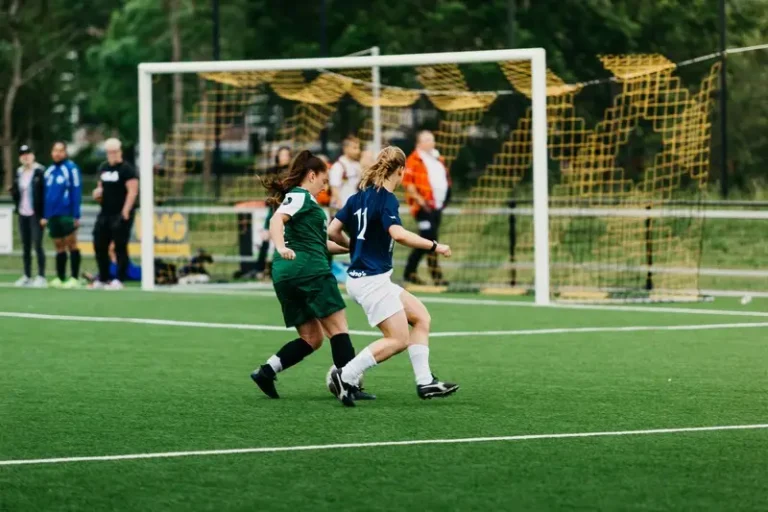Table of Contents
- The Origins of Wimbledon: A Class-Based Genesis
- Wimbledon as a Cultural Performance of Class
- Accessibility and Barriers
- Globalisation and Changing Class Dynamics
- Wimbledon’s Broader Sociological Implications
- Efforts Toward Inclusivity
- Conclusion: Wimbledon as a Reflection of Society
Wimbledon, the prestigious tennis tournament held annually in London, is not just a major sporting event but also a cultural symbol steeped in history and tradition. While it is celebrated worldwide for its unparalleled elegance and competitive tennis, Wimbledon also serves as a fascinating lens through which to examine social class dynamics in Britain. From its founding to its contemporary status, Wimbledon reflects and reproduces social hierarchies in subtle yet profound ways. In this article, we will explore the historical relationship between Wimbledon and social class, delve into the cultural practices surrounding the event, and discuss its implications for broader societal structures.
The Origins of Wimbledon: A Class-Based Genesis
When the All England Croquet and Lawn Tennis Club hosted the first Wimbledon Championships in 1877, the event was firmly rooted in the upper echelons of British society. Lawn tennis, an offshoot of the aristocratic sport of croquet, emerged as a pastime for the elite. Wimbledon, as the first major tournament, embodied this exclusivity.
The Role of Amateurism
In its early days, Wimbledon adhered to the Victorian ideal of amateurism, which held that sports should be pursued for the love of the game rather than monetary gain. This philosophy aligned closely with the values of the upper class, who could afford to play without seeking financial rewards. Professionals, who often came from working-class backgrounds, were excluded from the tournament until the Open Era began in 1968. This marked a significant yet incomplete step toward inclusivity.
Amateurism was not just a rule; it was a cultural marker that distinguished the social elite from others. The insistence on amateurism revealed how sport was used to signify class distinction, as those who competed professionally often did so out of financial necessity, placing them outside the acceptable norms of upper-class leisure.
Club Membership and Exclusivity
The All England Club itself remains a symbol of exclusivity. Membership is highly selective, with a preference for those who are socially well-connected or have significant achievements in tennis. This exclusivity perpetuates the association of Wimbledon with privilege and class distinction.
Membership involves not just the payment of fees but also navigating a social network that is inaccessible to most. The restricted nature of this club mirrors the broader mechanisms of social closure that maintain class boundaries in Britain. Even today, the All England Club’s gatekeeping role reinforces Wimbledon’s identity as a bastion of the elite.
Wimbledon as a Cultural Performance of Class
Wimbledon is not merely a tennis tournament; it is a performance of British class and tradition. From the sartorial choices of attendees to the consumption of strawberries and cream, every aspect of the event carries cultural significance.
Dress Codes and Social Signifiers
Wimbledon’s strict dress code, especially for players, is one of its most defining features. The requirement for all-white attire harkens back to Victorian sensibilities, when white was associated with wealth and leisure due to its impracticality for manual labor. Spectators, too, often dress in formal or semi-formal attire, signaling respectability and adherence to social norms.
The emphasis on clothing extends beyond tradition; it actively communicates belonging to a certain social milieu. Dressing appropriately for Wimbledon is a symbolic act, signaling one’s awareness of and alignment with its cultural expectations. This subtle yet powerful mechanism perpetuates class distinctions.
Strawberries and Cream: A Culinary Tradition
The consumption of strawberries and cream at Wimbledon is more than a culinary choice; it is a ritual steeped in symbolism. Historically, strawberries were a luxury item, available only to the wealthy. By maintaining this tradition, Wimbledon reinforces its association with affluence and nostalgia for a class-stratified past.
This ritual also reflects how consumption practices can signal social class. Pierre Bourdieu’s concept of “habitus”—the ingrained habits and tastes that reflect one’s social position—is evident here. Participating in such rituals signifies cultural competence and familiarity with elite traditions.
The Royal Box
The presence of the Royal Box, reserved for royalty and distinguished guests, underscores Wimbledon’s connection to the British establishment. This visual reminder of hierarchical privilege reinforces the tournament’s alignment with elite status.
The Royal Box is not merely a seating arrangement; it is a symbolic center of authority and prestige. Its prominence on Centre Court sends a clear message about the enduring relevance of traditional power structures within British society.
Accessibility and Barriers
While Wimbledon’s global popularity suggests inclusivity, several barriers limit access to the tournament and its culture.
Ticketing System
Wimbledon’s ticketing system is notoriously complex and exclusive. While the public ballot allows some level of access, tickets for the best seats are often allocated to members, corporate sponsors, and those with connections. This system privileges those with social capital and financial resources.
The “queue,” an iconic aspect of Wimbledon, is often romanticized as a democratic tradition. However, even this process is laden with barriers, as queuing for hours or even days requires significant time and financial flexibility, further privileging those with resources.
Cost of Participation
The costs associated with attending Wimbledon, including tickets, travel, and accommodation, make it inaccessible to many. Moreover, participating in tennis itself remains expensive due to the costs of coaching, equipment, and club memberships, creating a sport predominantly dominated by middle- and upper-class participants.
Tennis’s financial barriers extend globally. Aspiring players from less affluent backgrounds often face insurmountable obstacles, further entrenching the sport’s association with privilege.
Media Representation
Media coverage of Wimbledon often highlights its traditions and glamour, reinforcing its image as a sophisticated event. While this contributes to its prestige, it can alienate individuals who perceive the event as emblematic of an unattainable lifestyle.
The media’s focus on celebrity attendees and elite rituals amplifies the sense of exclusivity, overshadowing any efforts toward inclusivity. This narrative further cements Wimbledon’s position as a cultural event for the privileged.
Globalisation and Changing Class Dynamics
In recent decades, globalisation has transformed Wimbledon in ways that complicate its class-based identity. The tournament now attracts a more diverse audience, both in terms of nationality and social background, yet the underlying structures of exclusivity persist.
International Players and Sponsors
The dominance of international players and global brands at Wimbledon has diversified its cultural footprint. However, this has not eradicated class distinctions. Instead, it has shifted the focus to a global elite, who share similar markers of privilege regardless of their national origin.
Sponsors, including luxury brands, further entrench Wimbledon’s association with wealth. While they bring global visibility, they also reinforce the tournament’s alignment with affluent consumer culture.
Celebrity Culture
Get the full article AD FREE. Join now for full access to all premium articles.
View Plans & Subscribe Already a member? Log in.



